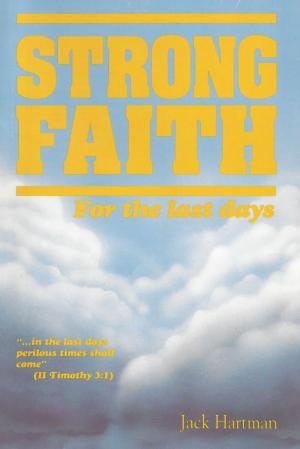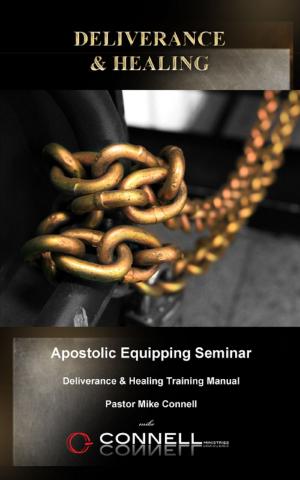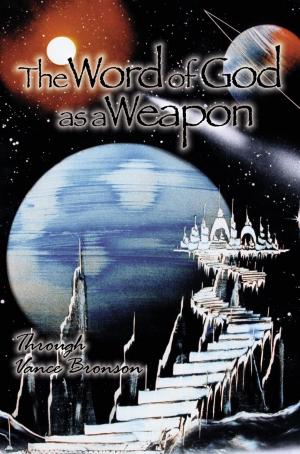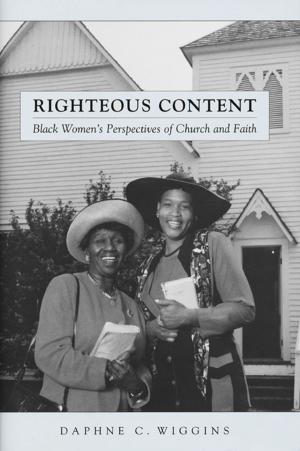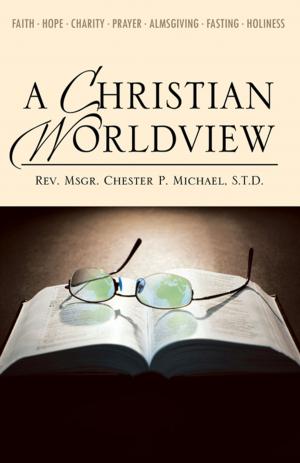Why Judgment Day Didn't Come: Why Harold Camping's Predictions Failed
Nonfiction, Religion & Spirituality, Christianity, General Christianity| Author: | Mark Koltko-Rivera | ISBN: | 9781458055026 |
| Publisher: | Mark Koltko-Rivera | Publication: | May 21, 2011 |
| Imprint: | Smashwords Edition | Language: | English |
| Author: | Mark Koltko-Rivera |
| ISBN: | 9781458055026 |
| Publisher: | Mark Koltko-Rivera |
| Publication: | May 21, 2011 |
| Imprint: | Smashwords Edition |
| Language: | English |
For many years, Harold Camping taught through radio shows produced by Family Radio of Oakland, California that the Rapture of the righteous into heaven would occur on May 21, and that the end of the Earth and the universe itself would occur on October 21, of 2011.
The failure of Camping’s predictions no doubt shook many of his followers. However, even on the basis that Camping used to validate his predictions—the Bible itself—these predictions were simply wrong.
Harold Camping’s predictions about the dates of the Rapture and the end of the world were based on a series of grave errors. First among these errors is a deeply flawed, even bizarre set of teachings regarding the historical timeline of the Bible. Secondly, Mr. Camping’s teachings about Biblical symbolism are shot through with logical and theological holes. But perhaps the worst problem with Mr. Camping’s teachings is that they are based on a very shaky understanding of Biblical teaching regarding both the interpretation of the Bible, and the nature of prophecy. I demonstrate all of this from the text of the Bible itself, which I consider to be the most powerful refutation of Mr. Camping’s ideas.
This sort of thing matters. People who expect the world to end have been known to commit murder and suicide, and to take other drastic, ill-considered courses of action. False predictions of the Judgment and so forth bring down ridicule upon Christianity and the Bible. A focus on false predictions distracts people from the real Christian message, and from the very real challenges that we face in today's world.
In the first section of this book, “The Claim,” I summarize Mr. Camping’s predictions and the rationale behind them. In the second section, “Why the Claim is Wrong,” I describe the errors that Mr. Camping made regarding biblical timelines and the interpretation of biblical symbolism. I also address the important question of whether Mr. Camping claimed to be a prophet. In the concluding section, I summarize the case against Mr. Camping’s predictions; I explain why predictions that claim to pinpoint the Judgment Day are popular; and I describe what it is that the Christian should do to gain accurate knowledge and avoid misinformation about that Judgment and the end times. (I also include full reference information for the citations to other literature that I make throughout this book, and I give a brief personal description of myself as the author.)
I am a Fellow of the American Psychological Association, who has received awards for my scholarly work in the psychology of religion and theory in psychology.
For many years, Harold Camping taught through radio shows produced by Family Radio of Oakland, California that the Rapture of the righteous into heaven would occur on May 21, and that the end of the Earth and the universe itself would occur on October 21, of 2011.
The failure of Camping’s predictions no doubt shook many of his followers. However, even on the basis that Camping used to validate his predictions—the Bible itself—these predictions were simply wrong.
Harold Camping’s predictions about the dates of the Rapture and the end of the world were based on a series of grave errors. First among these errors is a deeply flawed, even bizarre set of teachings regarding the historical timeline of the Bible. Secondly, Mr. Camping’s teachings about Biblical symbolism are shot through with logical and theological holes. But perhaps the worst problem with Mr. Camping’s teachings is that they are based on a very shaky understanding of Biblical teaching regarding both the interpretation of the Bible, and the nature of prophecy. I demonstrate all of this from the text of the Bible itself, which I consider to be the most powerful refutation of Mr. Camping’s ideas.
This sort of thing matters. People who expect the world to end have been known to commit murder and suicide, and to take other drastic, ill-considered courses of action. False predictions of the Judgment and so forth bring down ridicule upon Christianity and the Bible. A focus on false predictions distracts people from the real Christian message, and from the very real challenges that we face in today's world.
In the first section of this book, “The Claim,” I summarize Mr. Camping’s predictions and the rationale behind them. In the second section, “Why the Claim is Wrong,” I describe the errors that Mr. Camping made regarding biblical timelines and the interpretation of biblical symbolism. I also address the important question of whether Mr. Camping claimed to be a prophet. In the concluding section, I summarize the case against Mr. Camping’s predictions; I explain why predictions that claim to pinpoint the Judgment Day are popular; and I describe what it is that the Christian should do to gain accurate knowledge and avoid misinformation about that Judgment and the end times. (I also include full reference information for the citations to other literature that I make throughout this book, and I give a brief personal description of myself as the author.)
I am a Fellow of the American Psychological Association, who has received awards for my scholarly work in the psychology of religion and theory in psychology.


